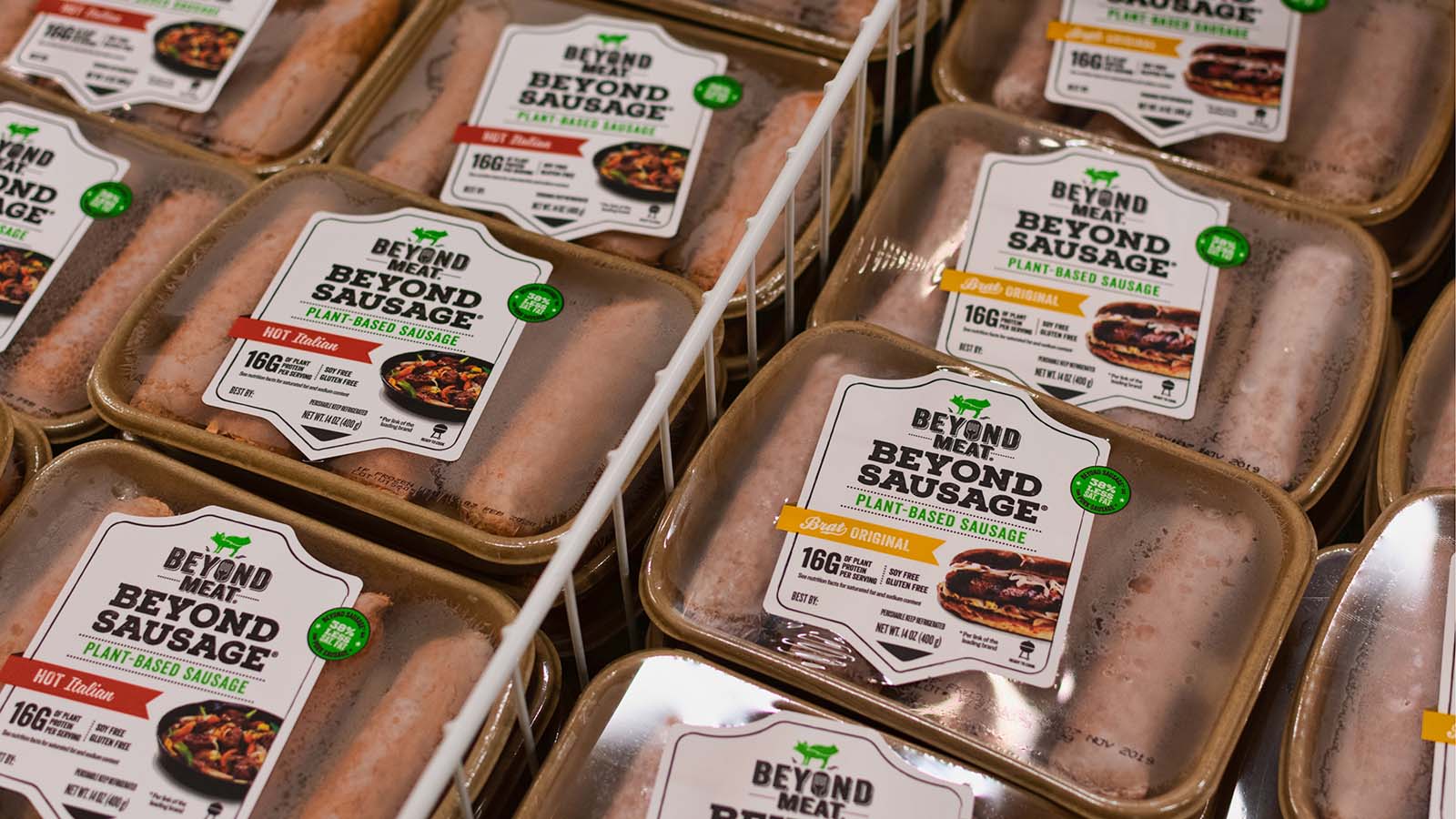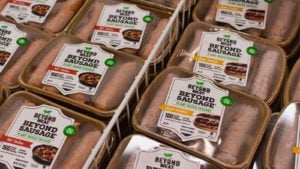From a very basic angle, the investment narrative for Beyond Meat (NASDAQ:BYND) is incredibly compelling. I don’t need to quote any sources to tell you that we live in a meat-obsessed society. From fast-food joints to Michelin star restaurants, our dietary options are filled to the brim with animal-based proteins. What makes Beyond Meat stock so special is that it can benefit from a possible paradigm shift.
While Americans love satisfying their carnal desires, we also know that practicing this diet excessively is not good for us. Specifically, some red meats are very high in saturated fats, which leads to raised blood cholesterol. Eventually, such foods dramatically raise the risk for heart disease. Also, the western diet combines meat with other processed foods, spiking cancer risks.
But what if you can have your meat and eat it too? That’s the question Beyond Meat seeks to answer and represents the driving force behind BYND stock.
Alternative meat products are not new. What’s groundbreaking about the current food environment, though, is the technology. Using a proprietary process that includes pea protein isolate, coconut oil, and canola oil, Beyond Meat is able to replicate the texture and taste of real meat. Moreover, the company markets the products to meat-lovers here and globally, further driving excitement toward Beyond Meat stock.
It’s not just a good story, either. Recently, McDonald’s (NYSE:MCD) announced that they will test the company’s plant-based burgers in 28 restaurants. Naturally, the news skyrocketed BYND stock. That’s because Beyond Meat isn’t going after vegetarians; instead, they could potentially change the way we think about meat.
What could go wrong? Plenty.
Beyond Meat Stock Doesn’t Represent a Solution
We have an obesity problem in the U.S. Logically, one of the most effective solutions is to promote a healthy, well-balanced diet. Supposedly, Beyond Meat addresses this problem by offering a plant-based meat solution. In reality, though, this solution merely transfers one problem to another.
For starters, alternative meats may be “safe,” but they’re not a health food. “Meatless burgers are heavily processed and high in saturated fat,” writes Emily Gelsomin, a senior clinical nutrition specialist at Massachusetts General Hospital (MGH).
This is where common sense comes into play. In their native state, vegetables and plants in general don’t look nor taste like meat. Therefore, you must add various ingredients to them to replicate the unique qualities of red meat.
Stated differently, Beyond Meat products are heavily processed, and processed foods are huge problems in the western diet. As Dr. Theresa Oswald pointed out rather bluntly, the standard American diet, or “SAD,” consumes significantly more animal protein and fat than the Asian diet. Mix in our obsession with processed or fattening foods like French fries and you have our current obesity epidemic.
Don’t get me wrong: Beyond Meat does good in that we may end up slaughtering fewer innocent animals for food. But the company doesn’t solve our addiction to processed foods. Indeed, it might worsen it, which is a longer-term negative for BYND stock.
Are Alternative Meats Really Safe?
Speaking of the longer term, one of the problematic areas for Beyond Meat stock is the underlying safety question. For now, everybody is enjoying their meatless meat, undoubtedly making many cows grateful. But what is the broader impact to our collective health?
Unfortunately, we just don’t have the comprehensive studies to truly know what we’re doing to our bodies with fake meat. Interestingly, The Guardian’s Bee Wilson took a gander at this new culinary phenomenon. While Wilson noted that alternative meats tasted like the real thing, some of the items didn’t sit well with her.
I’ll spare you my expounding on the details. But it’s safe to say that Wilson’s experience may represent a microcosm of the alternative meat world. Because the ingredients are so exotic and heavily processed, they’re not suitable for everybody.
Awkwardly, that contradicts Beyond Meat’s ambitious global strategies. You cannot mass produce food items that send a sizable portion of the populace running for the toilet. Of course, Wilson’s experience detracts from BYND stock.
But a bigger question is this: if it doesn’t sit well with digestion, what else could processed fake meat do to your system? I’m not sure if people want to volunteer guinea pigging themselves. This also clouds the narrative for Beyond Meat stock.
The Asian Outreach Could Backfire
A commonly cited catalyst for BYND stock is the underlying company’s expansion into Asian markets. Beyond Meat CFO Mark Nelson stated:
Asia has a desperate need for this. So I’m going to be very aggressive in going into those markets, and our team will be as well. … Asia is absolutely a strong part of our strategy.
It all sounds very compelling, especially considering the company’s growth in the region. However, I see a risk that alternative meat makers could change the eastern diet to a western one. That could have big consequences, resulting in a backlash against Beyond Meat stock.
Let’s be real: when medical experts talk about healthy diets, they look eastward, not westward. Here’s what UCSF Cancer Resource Center nutritionist Sarah O’Brien, M.S., R.D., had to say on the subject:
Since Asian cultures have lower incidence of cancer, let’s look at what they’ve eaten for generations, as opposed to giving a small research group a cancer-fighting food and measuring the effects. Not one food, such as fish, green tea or soy, will make a huge impact on its own. But changing your overall dietary patterns and leading a more active lifestyle will.
In other words, Beyond Meat may undermine Asia’s healthy proclivities with processed junk food dressed up as alternative meat. That won’t sit well with many government bodies, presenting another longer-term challenge to Beyond Meat stock.
As of this writing, Josh Enomoto did not hold a position in any of the aforementioned securities.

